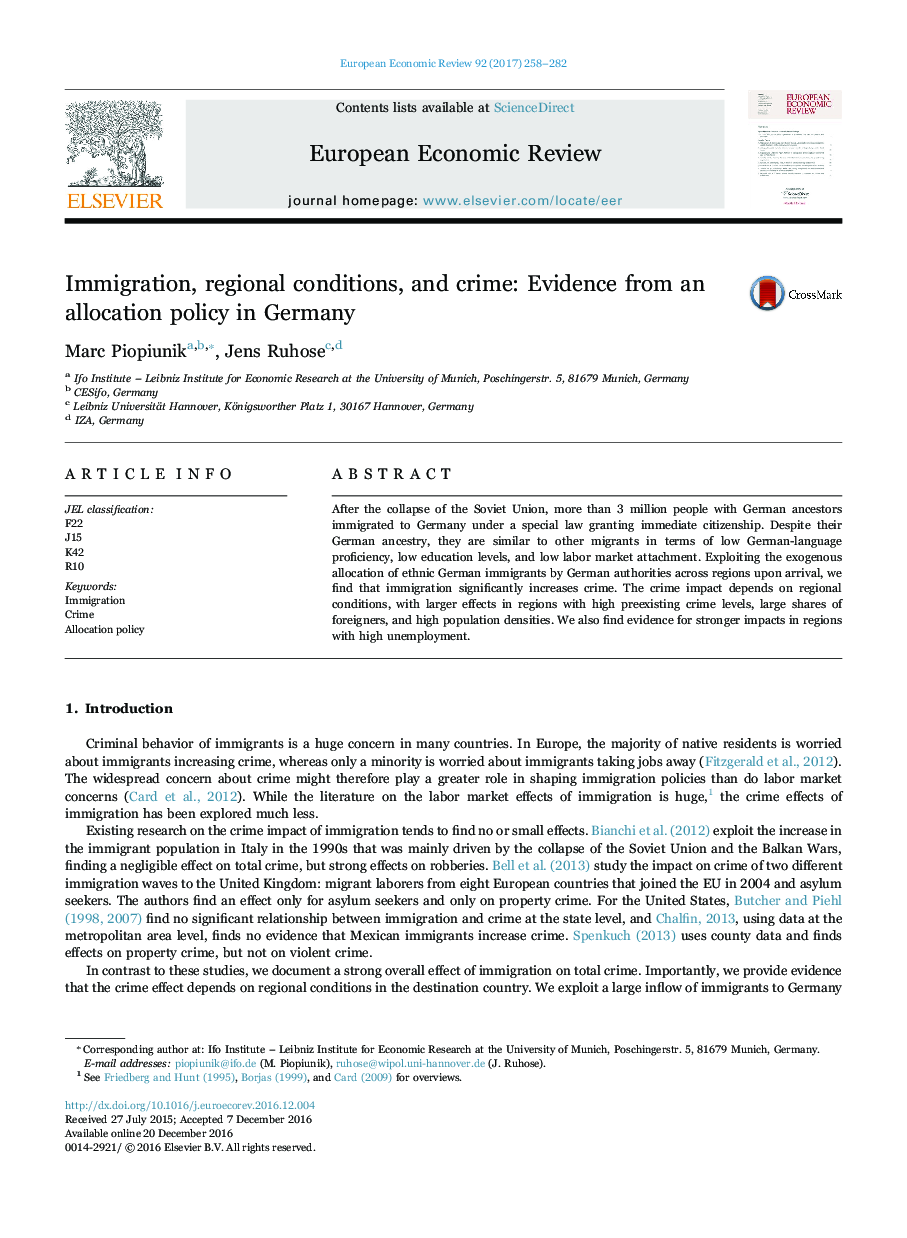| Article ID | Journal | Published Year | Pages | File Type |
|---|---|---|---|---|
| 5066317 | European Economic Review | 2017 | 25 Pages |
After the collapse of the Soviet Union, more than 3 million people with German ancestors immigrated to Germany under a special law granting immediate citizenship. Despite their German ancestry, they are similar to other migrants in terms of low German-language proficiency, low education levels, and low labor market attachment. Exploiting the exogenous allocation of ethnic German immigrants by German authorities across regions upon arrival, we find that immigration significantly increases crime. The crime impact depends on regional conditions, with larger effects in regions with high preexisting crime levels, large shares of foreigners, and high population densities. We also find evidence for stronger impacts in regions with high unemployment.
